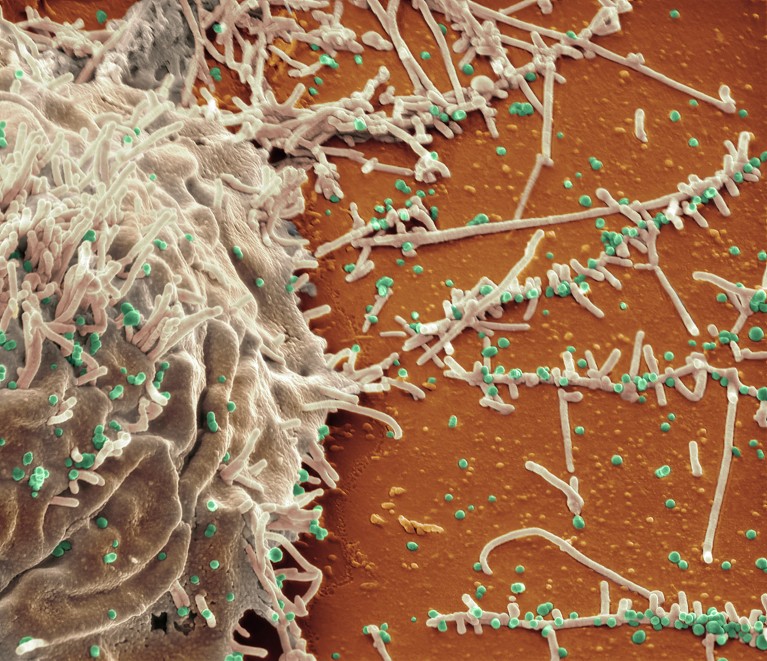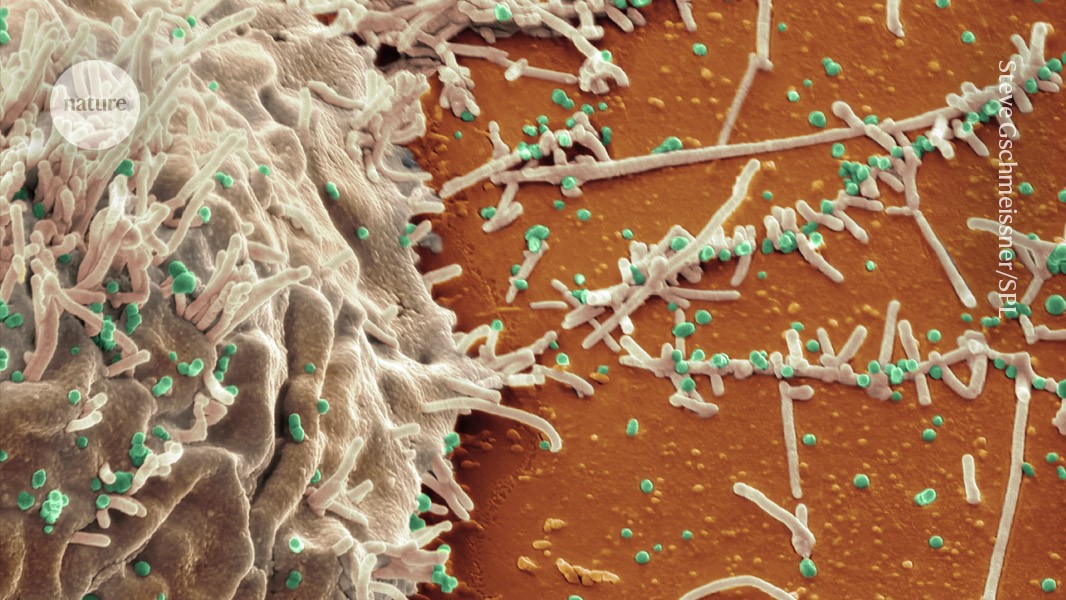
Future antibody therapies could target H5N1 avian influenza virus (green).Credit: Steve Gschmeissner/Science Photo Library
Researchers are increasingly developing antibody therapies to treat infectious diseases. Therapies are being designed to reduce the severity of infections such as bird flu, and cure chronic conditions such as HIV. Synthetic antibodies could also make vaccines for diseases such as COVID-19 more effective.
Antibodies are part of the immune system’s defence against infection. Scientists produce synthetic versions by combining B cells from mice and human cell lines. Most approved antibody drugs are for cancers and autoimmune diseases.
Monoclonal antibodies are also widely used in antiviral therapies to treat severe infections caused by Ebola, respiratory syncytial virus (RSV) and the COVID-19 virus SARS-CoV-2, says Runhong Zhou, who studies immune responses at Hong Kong University. But past efforts to develop antivirals for avian influenza have not been as successful because the virus undergoes mutations that make treatment less effective, he adds. Antibody drugs for COVID-19 have also become less effective over time for the same reason.
Bird flu treatment
For H5N1 avian influenza, Zhou and his colleagues have developed an antibody that has two targets: the stem region of proteins on the surface of the virus and receptors on a person’s cells. In cell-based experiments, they found that the antibody neutralized multiple live strains of the bird flu virus and was superior to a model monoclonal antibody — which targets only one specific antigen — at stopping viral particles from attaching to or entering cells. Their results suggest that targeting the virus stem and host receptors at the same time “is a good strategy to enhance antibody efficacy”, Zhou says, who was among the teams presenting their findings in this field at the Pandemic Research Alliance International Symposium in Melbourne last week. But it is still unclear how long the protection will last, or whether antibody treatment can induce mutations in the virus that allow it to evade the immune system.
Hsiang Hong, a medical student at Columbia University in New York City, is also part of a team using antibodies for H5N1. He says that he and his colleagues are developing a panel of monoclonal antibodies that target multiple parts of the H5N1 virus to track how it evolves over time and identify potential treatments that can target several variants of the virus.
A helping hand
Antibodies could also boost the efficacy of other treatments, such as vaccines, which need to be updated because most viruses mutate frequently as they evolve.
Zhiwei Chen, an immunology researcher at the University of Hong Kong, says antibodies that can bind to highly conserved parts of SARS-CoV-2 could help vaccines to stay effective even as the virus mutates. Chen and his team have identified several areas of the SARS-CoV-2 particle surface that do not change when the virus undergoes mutation. They have also found that several antibodies that target these highly conserved areas were effective at neutralizing different coronaviruses, including SARS-CoV-1, which causes severe acute respiratory syndrome, variants of SARS-CoV-2 and some coronaviruses found in pangolins and bats.


